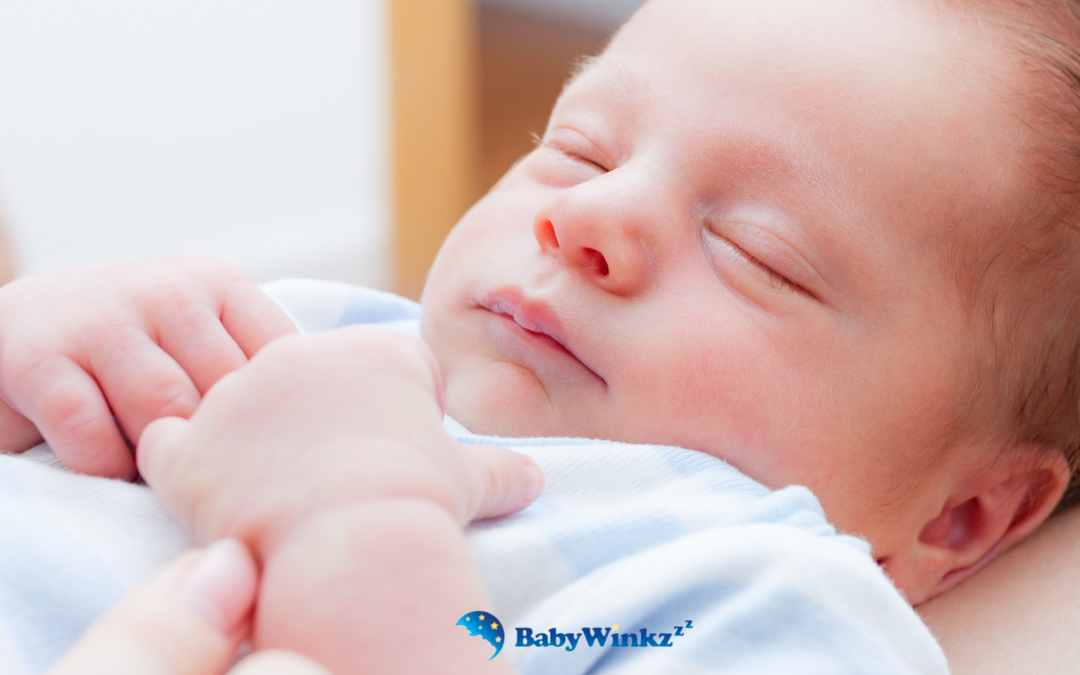Understanding the role of cortisol in baby sleep can be challenging for new parents. My interest in this topic was sparked by a conversation with someone living with Addison’s disease. This is a condition where the adrenal glands produce insufficient cortisol. Our conversation highlighted the common misconception among parents that cortisol is ‘dangerous.’ However, in reality, cortisol is crucial for health, and its levels naturally fluctuate to support various bodily functions, including sleep.
What is Cortisol?
Cortisol is commonly known as the body’s ‘stress hormone’. Stress is how the body reacts to challenges, and cortisol plays a crucial role in helping us manage these challenges. When we face stress, our brain activates the hypothalamic-pituitary-adrenal (HPA) axis, resulting in cortisol being released into the bloodstream1 . This process helps the body cope with stress by providing the necessary energy and resources. Despite its reputation, cortisol is not ‘bad’. In fact, it’s vital for regulating various physiological functions beyond the stress response, such as metabolism, immune response, and even memory formation.
Cortisol and Baby Sleep
Cortisol levels follow a circadian release pattern and help regulate sleep. The levels of cortisol typically peak just before waking up and decrease throughout the day, reaching their lowest point at the beginning of sleep. Higher levels can promote wakefulness, while lower levels support deeper sleep.
This means that when babies become overtired or experience disruptions in their sleep routines, cortisol levels may rise due to the body’s stress response. Elevated levels lead to increased alertness and restlessness, making it difficult to settle and fall asleep. Essentially, when a baby’s sleep is disturbed, it can lead to a cycle where stress makes it harder to rest, which in turn can cause more stress. Therefore, maintaining consistent sleep schedules and avoiding overtiredness is important for promoting healthy sleep habits.
Cortisol’s link to increased stress and arousal is why some parents are worried about this hormone, fearing that it might be harmful to their baby’s well-being. However, cortisol itself is not the primary issue. It is a natural response to stress and sleep disruptions. Throughout human history, cortisol would act by responding to our wakefulness by alerting us to potential threats and preparing our bodies for action. This is referred to as the fight-or-flight response. Therefore, when babies are overtired or their sleep is disrupted, higher cortisol levels are doing their job correctly.
If Cortisol Isn’t the Problem, What Is?
In this case, the key is to address your baby’s sleep. By creating a stable sleep environment and adhering to a regular sleep routine, baby’s are less likely to reach an overtired state or wake without being able to self-soothe back into sleep. Be mindful of avoiding getting to the point of overtiredness. You want your little one in bed and asleep before overtiredness occurs. Common sleep cues that could indicate overtiredness can be found here.
If you have concerns about your baby’s medical health or suspect cortisol related health conditions, it’s important to speak with your healthcare provider for proper evaluation and guidance.
- Thau, L., Gandhi, J., Sharma, S., 2023. Physiology, Cortisol. StatPearls. Treasure Island (FL): StatPearls Publishing. ↩︎

